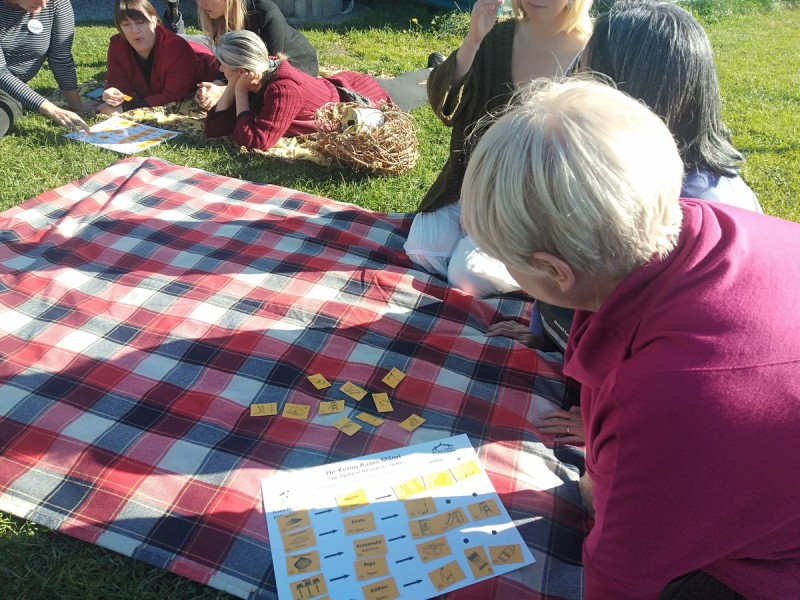Kahurangi Carter is the national manager for Para Kore, and teaches people around New Zealand to deepen their relationship with the natural world through a Te Ao Māori.
She says looking at things through this view reminds us of the cyclical way nature operates.
"If we just look around we can see circles in the compost system, where someone grows some food, eats it, all the leftovers go back into the compost and we put it back into the ground so a tree can be healthy and we can grow it again.
"It's like a perfect circular economy."
She says this is in direct contrast to the system of capitalism we live under.
"This linear system that we live in now isn't a system based on reciprocity... it's not a system based on our connection to the natural world and also the understanding that we're from the natural world.
"So we need to move back towards circular systems in our lives, through things like eating from locally sourced food."
Kahurangi also mentioned product stewardship, a proposed regulation in which companies who produce products like batteries and tyres would be responsible for their disposal.
She said explaining sustainability through Tikanga helps make it easier for people to understand.
"If we always just think about Whakapapa, which is the genealogy of where we come from... we know who our parents are, we know which street we grew up on... we can look at the whakapapa of our stuff as well.
"That would be the one thing I would say, if you're going to lean into Tikanga Māori and learn about how the indigenous people of Aotearoa look into sustainability - start with Whakapapa, and it applies to everything."
The wānanga taught the Māori creation story, and included activities where people matched natural goods with the products they're turned into, and how they're disposed of.


